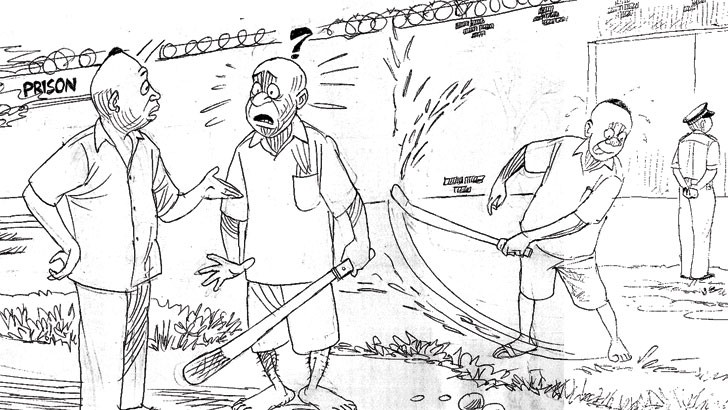Gwape in cattle kraal
Gwape (duiker) hotly pursued by mimbulu (wild dogs) fled for refuge into a cattle kraal, and buried itself in a truss of hay, leaving nothing to be seen but the tips of its horns.
Soon after, the hunters came up and asked if anyone had seen gwape. The stable boys, who had been resting after their dinner, looked round, but could see nothing, and the hunters went away.
Shortly afterwards, the master came in, and looking round, saw that something unusual had taken place.
He pointed to the truss of hay and said: “What are those two curious things sticking out of the hay?”
And when the stable boys came to look, they discovered gwape, and soon made an end of it.
Gwape thus learnt that nothing escapes the master’s eye.
It is not easy to write briefly about the Institute of Public Opinion and Research (Ipor) and Boniface Dulani’s contribution to national public attitude surveys that give voice to not only ordinary Malawians but Africans in general on issues of democracy and governance in Malawi.
Their non-partisan surveys are scattered through political eras across the continent, and are invariably subordinated to topics—democracy and governance, the economy, civil society and so forth—which are fundamental to the development of the country.
As earlier said, in a short column, it is impossible to do more on Ipor and Dulani’s ability and achievements in research studies than touch on a few of the points of special interest in their works.
So it is important at this juncture to underscore that the recently released survey reports have brought some questions to some ordinary citizens who are but the surveys’ clients.
Yet one would like to think that Ipor and Dulani’s surveys being conducted in a freer and transparent political environment, comprehensive and articulate report would be the studies’ obvious by-product.
Ipor and Dulani, for example, recently released survey report revealing that over 40 percent of Malawians believe former president Joyce Banda (JB) and People’s Party (PP) were ‘responsible’ for the plunder of the public purse that culminated in what is now called Cashgate.
According to Dulani, in the study respondents were asked to mention a person they thought was most ‘responsible’ for Cashgate and said their responses reflected public perceptions on the scandal.
But it may be objected here that such a survey was not meant to be because the outcome was too obvious to be researched on or the question could be competently answered only by thorough investigations into the scandal.
It all depends on the semantic play of the word ‘responsible’.
If being ‘responsible’ in the report means ‘negligence’, then anywhere in the world, it is obvious managers, just as JB was the country’s chief executive officer, that fail to properly protect or give full account of resources of the organisation are axed or charged with dereliction of duties.
As such, it looks a waste of resources to go round asking citizens about something which the system already provides responses for.
But if ‘responsible’ in the report means ‘taking part or an accomplice’, then it is only the Cashgate investigations and prosecutions underway, rather than an ordinary person devoid of investigative or judicial skill/knowledge, that perhaps could give an accurate answer.
The observations underlined here are far from suggesting that the surveys are mere fabrications.
But the public, who are clients, are like young people. And young people are impressionable, says Socrates, and any impression we choose to make leaves a permanent mark.
Yet it is high time Ipor and Dulani also realised as did the gwape in cattle kraal that same young people are so curious about details like the master of the cattle kraal that nothing can escape their eyes. n




